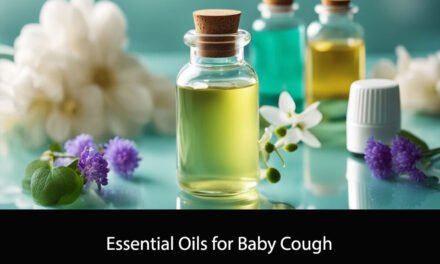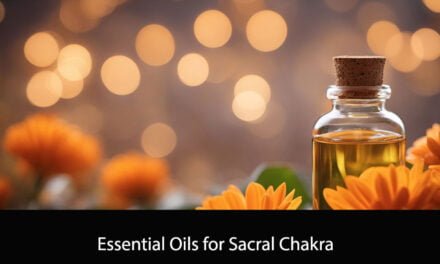Essential oils have been used for centuries for their therapeutic benefits. These oils are derived from various plants and are known to have a positive impact on our physical and mental well-being. One of the most popular uses of essential oils is for muscle relaxation.

When we experience muscle tension, it can lead to discomfort and pain. This tension can be caused by a variety of factors, such as stress, overuse, or injury. Essential oils can help to alleviate this tension by promoting relaxation and reducing inflammation.
In this article, we will explore the benefits of using essential oils for muscle relaxation. We will discuss the different types of essential oils that are effective for this purpose and how to use them safely and effectively. Whether you are an athlete looking to soothe sore muscles or simply looking for a natural way to unwind after a long day, essential oils can be a powerful tool for promoting relaxation and easing muscle tension.
Understanding Essential Oils

History and Origin
Essential oils have been used for centuries for their therapeutic properties. The ancient Egyptians, Greeks, and Romans were known to use essential oils for their medicinal benefits. Essential oils are extracted from plants, and their use can be traced back to ancient times when people discovered the healing properties of plants. The use of essential oils has continued to evolve, and today, they are used in many different ways, including aromatherapy, massage, and skincare.
Extraction Methods
Essential oils are extracted from plants using various methods. Steam distillation is the most common method of extraction, where steam is used to extract the oil from the plant material. Cold pressing is another method of extraction, which is used for citrus oils. The plant material is pressed to extract the oil, which is then separated from the juice. Solvent extraction is another method, which is used for delicate flowers. The plant material is soaked in a solvent, which extracts the oil.
Types of Carrier Oils
Carrier oils are used to dilute essential oils before they are applied to the skin. They are also used to enhance the absorption of the essential oils into the skin. There are many different types of carrier oils, including coconut oil, jojoba oil, almond oil, and grapeseed oil. Each carrier oil has its own unique properties and benefits, and the choice of carrier oil will depend on the desired effect.
In summary, essential oils have a rich history and are extracted using various methods. Carrier oils are used to dilute essential oils, and there are many different types to choose from. Understanding essential oils and their properties is essential when using them for muscle relaxation.
Benefits of Essential Oils for Muscle Relaxation

When it comes to muscle relaxation, essential oils can be a great natural remedy. Here are some of the benefits of using essential oils for muscle relaxation.
Pain Relief
Essential oils such as peppermint, lavender, and eucalyptus have natural pain-relieving properties that can help ease muscle pain and soreness. These oils work by stimulating the body’s natural pain-relieving mechanisms and reducing inflammation.
Reducing Inflammation
Inflammation is a common cause of muscle pain and stiffness. Essential oils such as ginger, turmeric, and frankincense have anti-inflammatory properties that can help reduce inflammation and promote healing.
Improving Circulation
Proper circulation is essential for healthy muscles. Essential oils such as rosemary, cypress, and juniper berry can help improve circulation by dilating blood vessels and increasing blood flow to the affected area.
Overall, essential oils can be a great natural remedy for muscle relaxation. By using essential oils, we can provide our muscles with the natural support they need to heal and relax.
Top Essential Oils for Muscle Relaxation

When it comes to muscle relaxation, essential oils can be a great natural solution. Here are some of the top essential oils for muscle relaxation:
Lavender Oil
Lavender oil is one of the most popular essential oils for relaxation. It has a calming scent that can help reduce stress and anxiety, which can in turn help relax muscles. Lavender oil can also help with pain relief, making it a great option for sore muscles.
Peppermint Oil
Peppermint oil is another essential oil that can help with muscle relaxation. It has a cooling effect that can help soothe sore muscles and reduce inflammation. Peppermint oil can also help with pain relief, making it a great option for those with muscle pain.
Eucalyptus Oil
Eucalyptus oil is known for its ability to help with respiratory issues, but it can also be used for muscle relaxation. It has a cooling effect that can help soothe sore muscles and reduce inflammation. Eucalyptus oil can also help with pain relief, making it a great option for those with muscle pain.
Rosemary Oil
Rosemary oil is another essential oil that can help with muscle relaxation. It has a warming effect that can help soothe sore muscles and improve circulation. Rosemary oil can also help with pain relief, making it a great option for those with muscle pain.
Overall, essential oils can be a great natural solution for muscle relaxation. However, it’s important to use them safely and properly. Always dilute essential oils before use and avoid using them on broken skin. If you have any medical conditions or concerns, be sure to consult with a healthcare professional before using essential oils.
Application Methods
Topical Application
One of the most common ways to use essential oils for muscle relaxation is through topical application. This involves mixing a few drops of the essential oil with a carrier oil, such as coconut or jojoba oil, and massaging it onto the affected area. The carrier oil helps to dilute the essential oil and prevents skin irritation.
When applying essential oils topically, it is important to perform a patch test first to ensure that you are not allergic to the oil. Apply a small amount of the diluted oil to a small area of skin and wait 24 hours to see if there is any reaction.
Aromatherapy
Aromatherapy is another effective way to use essential oils for muscle relaxation. This involves inhaling the scent of the oil, either by using a diffuser or by placing a few drops on a tissue or cotton ball.
When using a diffuser, add a few drops of the essential oil to water and turn on the diffuser. The mist will disperse the scent throughout the room, providing a relaxing atmosphere.
Bath Soaks
Adding essential oils to a warm bath can also help to relax muscles and ease tension. Mix a few drops of the essential oil with a carrier oil, such as almond or grapeseed oil, and add it to the bathwater.
To enhance the experience, consider adding Epsom salt to the bathwater. Epsom salt contains magnesium, which can help to soothe sore muscles.
Overall, there are several effective ways to use essential oils for muscle relaxation. Whether through topical application, aromatherapy, or bath soaks, incorporating essential oils into your self-care routine can help to promote relaxation and ease muscle tension.
Safety and Precautions
When using essential oils for muscle relaxation, it is important to keep in mind some safety precautions to avoid any adverse reactions. Here are some key points to consider:
Skin Sensitivity
Some essential oils can cause skin irritation or allergic reactions, especially if used undiluted or in high concentrations. It is important to patch test any new essential oil before using it on a larger area of skin. To do so, apply a small amount of diluted essential oil to a small patch of skin and wait 24-48 hours to see if any redness, itching, or swelling occurs. If you experience any discomfort, discontinue use immediately.
Proper Dilution
Essential oils should always be diluted before applying them to the skin. Dilution helps to reduce the risk of skin irritation and also makes the oil last longer. The recommended dilution ratio is typically 1-2% for adults, which means adding 1-2 drops of essential oil per teaspoon of carrier oil. For children, elderly, and pregnant women, a lower dilution ratio is recommended. It is important to use a high-quality carrier oil, such as coconut oil, jojoba oil, or sweet almond oil, to dilute the essential oil.
Pregnancy and Medical Conditions
Some essential oils are not safe for use during pregnancy or for people with certain medical conditions. For example, essential oils such as clary sage, rosemary, and thyme should be avoided during pregnancy, while people with high blood pressure should avoid using stimulating oils like peppermint and eucalyptus. It is important to consult with a healthcare professional before using essential oils if you have any medical conditions or are pregnant.
By following these safety precautions, you can enjoy the benefits of essential oils for muscle relaxation without any negative side effects.
DIY Recipes for Muscle Relaxation
If you are looking for natural ways to relieve muscle tension and soreness, essential oils can be a great option. Here are some DIY recipes that you can try at home:
Massage Blends
Massage is a great way to relax your muscles and release tension. You can create your own massage oil blends by mixing a carrier oil with a few drops of essential oils. Here are some ideas:
- Relaxing Massage Oil: Mix 2 tablespoons of sweet almond oil with 5 drops of lavender oil, 3 drops of bergamot oil, and 2 drops of frankincense oil.
- Soothing Muscle Rub: Mix 2 tablespoons of coconut oil with 5 drops of peppermint oil, 3 drops of eucalyptus oil, and 2 drops of ginger oil.
Compresses
Compresses are another way to use essential oils for muscle relaxation. You can add a few drops of essential oils to hot or cold water and soak a cloth in the mixture. Here are some recipes:
- Warm Compress: Add 5 drops of lavender oil and 3 drops of chamomile oil to a bowl of hot water. Soak a cloth in the mixture and apply it to the affected area.
- Cold Compress: Add 5 drops of peppermint oil and 3 drops of eucalyptus oil to a bowl of cold water. Soak a cloth in the mixture and apply it to the affected area.
Roller Ball Remedies
Roller ball remedies are convenient and easy to use. You can mix essential oils with a carrier oil and store the mixture in a roller ball bottle. Here are some recipes:
- Muscle Relief Blend: Mix 10 drops of peppermint oil, 5 drops of lavender oil, and 5 drops of rosemary oil with 2 tablespoons of jojoba oil. Store in a roller ball bottle and apply to the affected area.
- Relaxing Blend: Mix 10 drops of lavender oil, 5 drops of bergamot oil, and 5 drops of ylang-ylang oil with 2 tablespoons of sweet almond oil. Store in a roller ball bottle and apply to the temples, neck, and shoulders for relaxation.
Remember to always dilute essential oils with a carrier oil before use and do a patch test before applying to a larger area of skin. These DIY recipes can be a great way to relieve muscle tension and promote relaxation, but they are not a substitute for professional medical advice.
Integrating Essential Oils into Wellness Routines
When it comes to muscle relaxation, essential oils can be a helpful addition to your wellness routine. Here are some ways to integrate essential oils into your daily routine:
Regular Massage
Regular massage can help to soothe sore muscles and promote relaxation. Adding essential oils to your massage routine can enhance the experience and provide additional benefits. For example, lavender oil is known for its calming properties, while peppermint oil can help to ease muscle tension.
Yoga and Meditation
Yoga and meditation are great ways to relax both the mind and body. Adding essential oils to your practice can help to enhance the experience and promote relaxation. For example, frankincense oil is known for its grounding properties, while bergamot oil can help to uplift the mood.
Sleep Hygiene
Getting enough sleep is essential for overall health and wellbeing. Essential oils can be a helpful addition to your sleep hygiene routine. For example, chamomile oil is known for its calming properties, while cedarwood oil can help to promote relaxation.
Incorporating essential oils into your wellness routine can be a simple and effective way to promote relaxation and soothe sore muscles. Remember to always use essential oils safely and consult with a healthcare professional if you have any concerns.
Frequently Asked Questions
Which essential oils are most effective for reducing muscle pain and inflammation?
Several essential oils are known for their anti-inflammatory properties and can help reduce muscle pain and inflammation. Some of the most effective essential oils for this purpose include peppermint, eucalyptus, ginger, and lavender.
How can I create a blend of essential oils to alleviate muscle pain?
To create a blend of essential oils for muscle pain relief, you can mix a few drops of your preferred essential oils together in a carrier oil. You can use a single oil or experiment with different combinations until you find a blend that works best for you. Be sure to dilute the essential oils properly before applying them to your skin.
What are the best carrier oils to use when diluting essential oils for muscle pain relief?
Some of the best carrier oils for diluting essential oils for muscle pain relief include coconut oil, jojoba oil, and sweet almond oil. These oils are known for their moisturizing properties and can help soothe and nourish your skin while also providing a base for the essential oils.
Can essential oils be used to treat muscle spasms, particularly in the legs?
Yes, essential oils can be effective in treating muscle spasms, especially in the legs. Some of the best essential oils for this purpose include peppermint, lavender, and chamomile. You can mix a few drops of these oils with a carrier oil and massage the mixture into the affected area.
What are the top recommended essential oils for easing muscle knots?
Essential oils such as peppermint, lavender, and eucalyptus are known for their ability to ease muscle knots. You can mix a few drops of these oils with a carrier oil and massage the mixture into the affected area to help release tension and promote relaxation.
Which natural oils are recognized as the most potent muscle relaxants?
Some of the most potent natural oils for muscle relaxation include lavender, chamomile, and ylang-ylang. These oils are known for their calming and soothing properties and can help ease muscle tension and promote relaxation.





